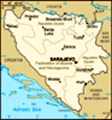Advertisement
Published: August 8th 2020
According to Business Insider: Travel has continued to surge in July and August, and travel shaming and COVID-call outs are becoming more common.While some travelers continue to share their photos and experiences on social media, many are choosing to curb their online presence or to not post at all."I think people are afraid. Everyone's under a microscope," said food blogger and influencer Ali Maffucci, who experienced backlash after traveling from New Jersey to Florida to be with family during quarantine.The US Travel Association has stated that with proper precautions like face masks and hand-washing, people can travel safely; the CDC still recommends that travel be limited to essential needs only.
Personally, I have not been outside of the county since March, when we drove Lexi to Scottsdale for Spring Training. Not even a drive up to Yosemite, or over to the coast. And I certainly would not advertise it on social media. In July,
US airlines saw more than 700,000 passengers per day over the July 4th weekend, a figure that has continued to climb in recent weeks. On August 2,
799,861 people passed through a TSA checkpoint. Yes, these figures are down compared to the same time last year, but the numbers don't lie. People are traveling, whether we agree with it or not. Perhaps you have joined the legions of campers, backpackers, and motor home afficionados? Then again, what are you going to do with all that stuff when things get back closer to normal? Here are some words that might help guide you: You stand almost no chance of changing anyone’s mind through online shaming. Having a private, respectful conversation with a family member, friend or loved one is one thing, but calling out a stranger or acquaintance online isn’t going to move the needle in the direction you desire.A hateful comment to someone who has already traveled will likely induce defensiveness, potentially making them that much more determined to travel.There are legitimate reasons people still have to travel and ways to
significantly reduce the risk when you do get out, regardless of the reason. What you see online is often
not the whole story, and shaming could belittle and dehumanize the traveler who needs to be on the road, or is traveling in a very thoughtful manner.People are making impossible decisions that risk their health in order to maintain their income. Millions of Americans are facing that dilemma right now, and travel is likely necessary for some to keep their jobs. On the flip side, also keep in mind that some people’s jobs
depend on others deciding to travel. While home is the safest place for many, everyone staying put indefinitely causes a new host of separate problems.
Bottom line: While urging caution and thoughtfulness is (of course) advised, travel shaming serves no purpose other than to further divide us. The Orange man in the White House has already divided us!!!On the other end of the spectrum:International travel may be the furthest thing from most people’s minds right now, but it’s all Indy Nelson can think about.
The 26-year-old Hayward resident has set foot in every country. In fact, he says he has set world records for being the youngest person to do it in the shortest period of time. By November 2017, after 18 months of whirlwind globetrotting, he visited the 193 sovereign countries recognized by the United Nations, plus Taiwan and the Vatican.
Guinness World Records, the official judge of such endeavors, has refused to recognize his feat. Nelson said he’s been trying for years to convince the organization, compiling some 9,000 pages of evidence of his travels. But he has been rejected four times, for what he argues are unfair technicalities.
Guinness has been tracking the youngest, fastest world travelers since at least 2004, and the requirements to claim the record are rigorous.
For instance, travelers vying for the record aren’t allowed to rent cars or pay for private transport; however, taxis and ferries are permitted over certain distances if applicants can prove there were no alternative transportation options available. Then, at the end, travelers have to
submit tons of proof: passport stamps, transportation logs, videos, sworn witness statements and more.
The bureaucracy required to claim the title is part of what makes the record so difficult to obtain. Nelson argues that Guinness has been “finding new reasons” to reject his claim over the past two years.
Eric Nguyen, 27, of San Jose, also claims to have broken the record, and says he is being similarly stonewalled by Guinness over “technicalities.” From 2011 to 2017, he sought the record for the youngest person to travel to every country at a cost of about $70,000.
Both men say the record-keeping organization lacks transparency and consistency. Nelson says, for example, that a Guinness case worker rejected his bid for renting a car in Yemen, though a former record-holder wasn’t penalized for that. In another instance, Nelson said he was dinged for using a private bus service, though he demonstrated that the service was public and in line with the rules.
Speed-traveling records are already among the toughest to verify because of all the minutiae involved in proving one’s case, Guinness World Records Editor in Chief Craig Glenday
told Freakonomics in 2008. Granular criteria and technological advancements like GPS make it easier, he said, “but to a certain extent there is an element of faith involved.”
Personally, who cares about Guinness? I would derive considerable satisfaction knowing that I reached a lifelong goal. And even more so, what did they really learn about the people and culture in those places? I prefer to learn something about each place I visit, good or bad, about the people, their history, and their unique culture.
Advertisement
Tot: 0.123s; Tpl: 0.017s; cc: 15; qc: 28; dbt: 0.0674s; 1; m:domysql w:travelblog (10.17.0.13); sld: 1;
; mem: 1.1mb







